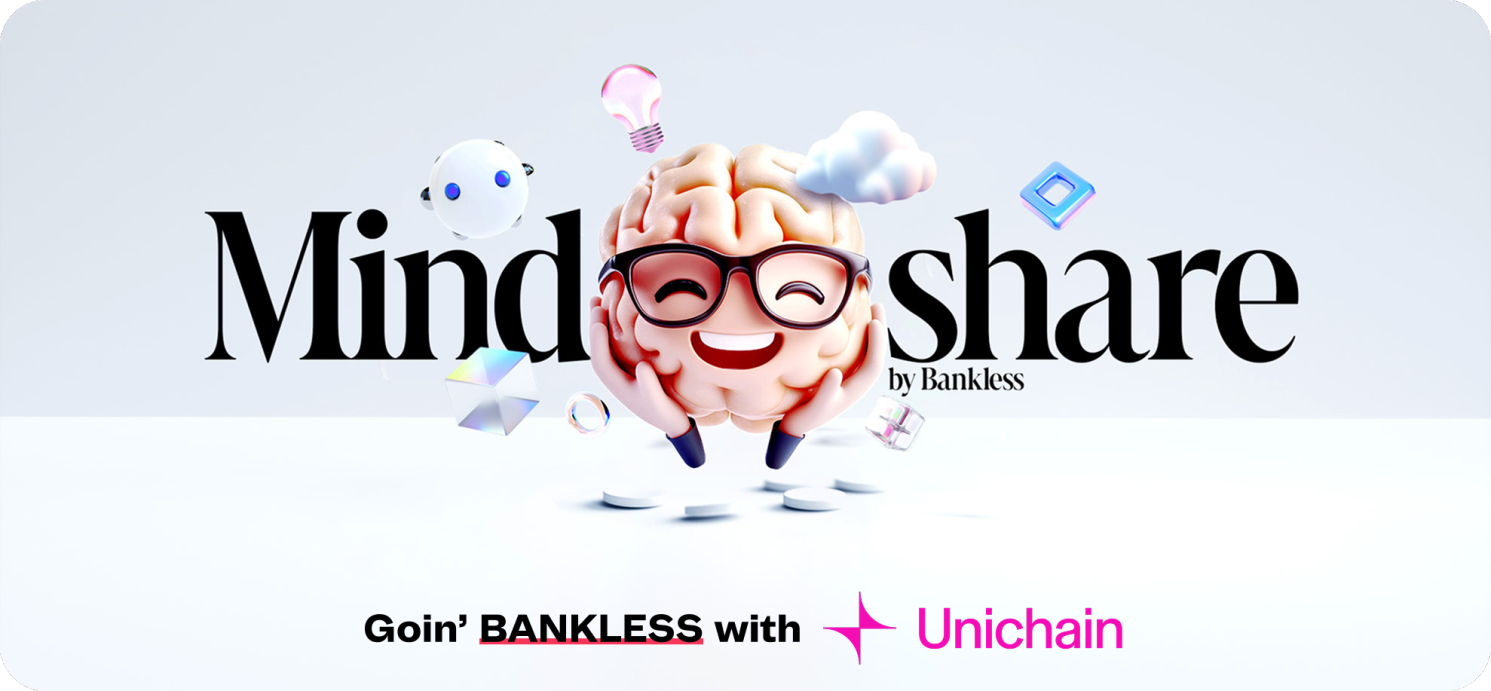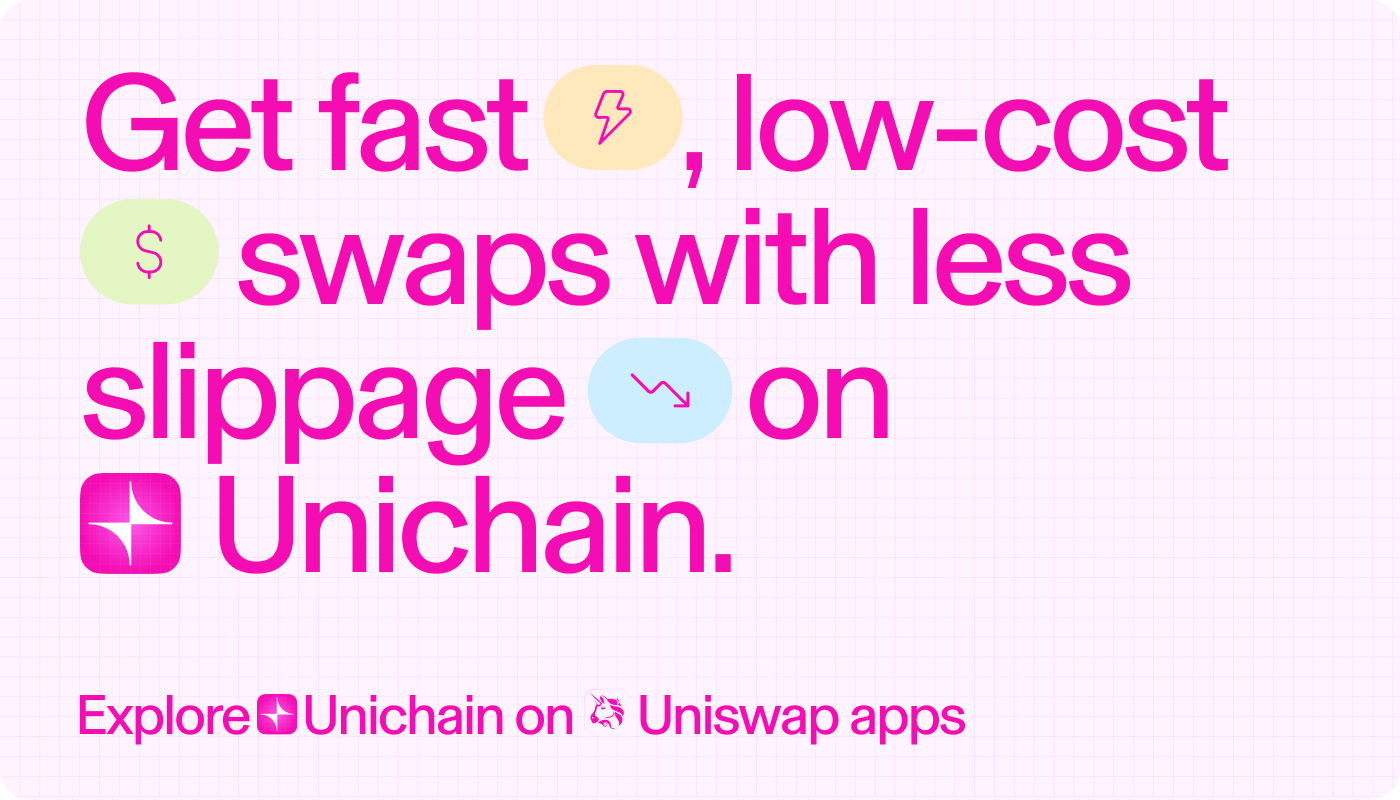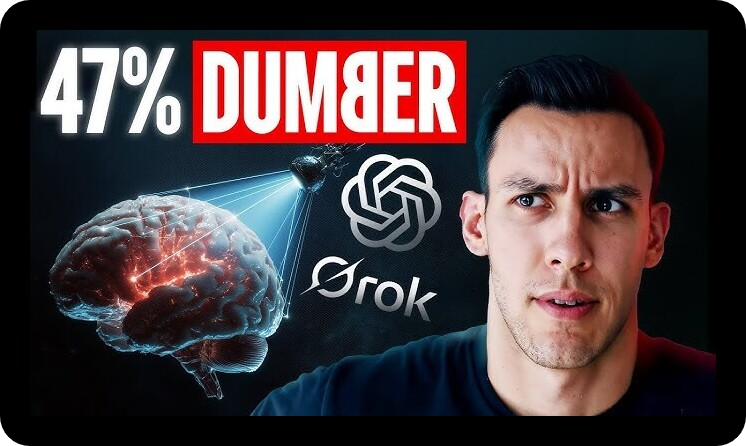Train to Earn


View in Browser
Sponsor: Unichain — Faster swaps. Lower fees. Deeper liquidity. Explore Unichain on web and wallet.

📸 Market Snapshot: While the broader AI agent sector slipped 1% this week according to DeFi Llama, Base told two very different stories depending on which community you were watching.
First up, the Virtuals ecosystem took a beating. $VIRTUAL itself dropped 16%, with ecosystem tokens like $AIXBT down 30% and $VADER falling 20%. Yet outside Virtuals, Base-native AI projects had a completely different week, particularly those related to Farcaster.
Token launcher $CLANKER surged 45%, turning around the previous underperformance via $BANKR for the second week in a row — likely in anticipation of its upcoming V4 launch.
Clanker also facilitated a successful launch of Faircaster — a VC agent for finding early Farcaster projects launched by caster @luc, a GP at Re7 Capital.
Beyond being able to 10x in a matter of minutes, the agent also tracks what "high-signal” builders launch, fund, and support, using those signals to invest from its treasury. An interesting note is that $FAIR was launched via Clanker’s Preclank feature, meaning the deployment was preconfigured and queued, then triggered when a preset phrase was cast.
Before we sign off for the week, one additional note on the Virtuals ecosystem — DeFAI agents outperformed. Trading assistant Gigabrain ($GIGA), which deployed its Auto Trade vaults, netted 18% on the week to reach new all time highs, while $AXELROD, the flagship ACP hedge fund agent, climbed 15%.

A few weeks back, Yupp announced a $33M seed round led by a16z's crypto arm, with participation from heavyweights like Google Chief Scientist Jeff Dean, Twitter co-founder Biz Stone, Pinterest co-founder Evan Sharp, and Coinbase Ventures.
Beyond just being a notable raise, the platform’s core premises prove quite interesting. Yupp intends to better the process of human feedback in AI training, and repurpose that feedback to establish a more objective benchmark for which to rate AI performance by.
Human feedback already proves essential to refining AI model training, but currently it’s largely uncredited, unrewarded, and controlled by a handful of tech giants. Yupp's approach is to flip this dynamic, using onchain infra to make feedback transparent, auditable, and financially rewarding for users.
1/24 I’m thrilled to share what my co-founder @gilad and I’ve been cooking up over the past year. Check out @yupp_ai – a fun and easy way for anyone to discover, compare and get the best answers across the latest AIs, all for free! Yes, even the most powerful pro models. pic.twitter.com/rpSUBFd3u2
— Pankaj Gupta (@pankaj) June 13, 2025
The Human Feedback Problem
While human feedback drives AI training, the current system is fundamentally broken.
Companies don't share their training processes or feedback pipelines due to competitive pressures, limiting external input and review while also creating opaque development cycles. For the users who do provide feedback, they never see how their interactions shape future models, nor do they receive any compensation for essentially doing unpaid labor.
How Yupp Addresses This
Yupp's solution is straightforward: reward users for quality feedback while creating a transparent, blockchain-recorded system that documents all contributions.
It does this by baking feedback directly into the process of prompting AI though, rather than making it a follow up task at the end when users may be more ready to sign off.
Here's how it works:
1. On Yupp’s home page, enter prompts for whatever you need AI help with. Prompts cost 50 Yupp credits by default, which are provided on sign-up and earned through the feedback process, varying in cost based on the model and use case.
2. See multiple AI-generated responses side-by-side from different models.
3. Pick the best option and provide feedback under categories like "better style" or "faster," with detailed reasoning. Your choices generate digitally signed preference packets recorded onchain for transparent AI training and reward attribution.
4. Get rewarded with either credits to use more AI models for free or direct cash payouts via Stripe, PayPal, Coinbase, and/or stablecoins on Base and Solana. (You must have a minimum of 6K credits though to cash out.) You can also earn bonus credits via referrals.
Yupp Leaderboard: A Better Way to Rank Models
As mentioned, beyond rewards, Yupp is also tackling AI benchmarking.
When companies announce their newest, "best-ever" model which outperforms on every benchmark, you should expect it to, since the vast majority of these benchmarks are set internally. For example, controversy stirred when OpenAI's o3 model scored lower on independent FrontierMath tests than it did internally. This isn’t to say that AI companies are lying; instead, they're likely adjusting the goal posts.
Even external benchmarks, like platform LM Arena, have issues. In this case, reports suggest leading AI companies that were tested by LM Arena were allowed to privately test multiple versions before public release. It's like letting the richest students retake a test until they get the grade they want.
To all this mess, Yupp's leaderboard seeks to offer an alternative: ranking models based on aggregate user feedback rather than opaque company benchmarks. The system uses a metric called VIBE (Vibe Intelligence Benchmark), which rates models on their popularity in everyday use according to real Yupp users.
The platform provides both overall rankings and granular categories like image generation, speed, reasoning ability, and best open models. This approach moves evaluation from corporate-controlled environments to actual user preferences, aiming to create a more democratic and transparent ranking system.
The Train-to-Earn Evolution
Far beyond a flashy raise announcement, Yupp stands out in the emerging “Train-to-Earn” vertical by smoothly integrating feedback into the everyday activity of prompting, rather than as a tedious data-labeling carousel. The design aligns model training with users' goals — people can use AI for their actual needs while contributing to feedback loops simultaneously.
For me, the side-by-side comparison format adds practical value beyond just earning rewards. Yupp users get something like built-in fact-checking when sourcing information, making the experience feel productive and not like unpaid labor. Onboarding comes smoothly too — users can start by simply connecting their Google account.
Compared to other platforms in this space, Yupp's feedback mechanism feels less extractive and more integrated into normal AI usage patterns. Rather than asking users to complete artificial tasks for rewards, it captures genuine preferences during real interactions.
However, the reward system isn't perfect. Credits are distributed sporadically rather than consistently, which certainly proves frustrating. Further, it’s hard not to think of the “only jobs left in the future” meme.
Still, in its current iteration, the experience is polished and intuitive, offering a way to access higher-tier models (albeit somewhat at random) at no cost. With its significant funding and experienced team, Yupp proves to be an intriguing way to prompt and earn.
Plus, other news this week...
🤖 AI Crypto
📣 General News
- 🔥 Anthropic — launched the ability to create and share AI-powered apps directly in the Claude app
- Cluely — the AI "cheat at everything" startup raised a $15M Series A led by a16z
- Creative Commons — unveiled CC Signals, a licensing framework for open AI data training
- Federal judges — sided with Anthropic and Meta in lawsuits re: training AI on copyrighted books
- Google — introduced Gemini CLI, an open-source AI tool for developer terminals
💻 Vibe Coding
- Open Economy (resource) — apply to Scroll's 4-week vibe coding camp for a shot at $100K in funding
- 🔥 Peter Yang (resource) — full tutorial on building a personal website from 0-1 in 15 mins using Bolt
- Lincoln.base.eth (template) — a forkable Flappy Bird demo built with Coinbase's x402 to show how easily vibe-coded apps can integrate native payments
📚 Reads
- Rosie Thomas — AI Models Don't Understand "Let Him Cook"
- 🔥 Kyla Scanlon — Trump, Mamdani, and Cluely
- 0xJeff — Bid the BID: The Rise of Bittensor Agents

Unichain offers the most liquid Uniswap v4 deployment on any L2 – giving you better prices, less slippage, and smoother swaps on top trading pairs. All on a fast, low-cost, and fully transparent network. Start swapping on Unichain today.

On this week’s Limitless, David, Ejaaz, and Josh dive into one of the darker prospects of ChatGPT—has AI made us dumber?
With ChatGPT now ubiquitous, a new MIT study just demonstrated a whopping 47% drop in neural connectivity for heavy users!
The trio digs into this research, then compares the risks of AI atrophying our brains against the new types of creativity made possible by multi-agent workflows, iterative prompts, and so on.
Catch up on all the big ideas here, tune into the full episode! 👇